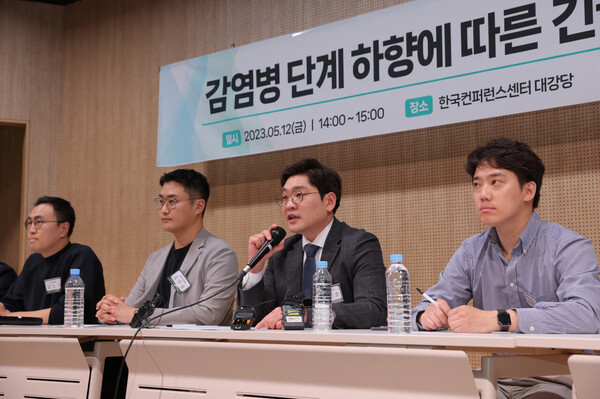The Korea Telemedicine Industry Council (KTIC) has voiced its opposition to the government’s pilot project plan, saying it runs squarely counter to the public’s demand by allowing only second-time treatment in principle.

“After all, our concerns have become a reality. The pilot project plan unveiled by the Ministry of Health and Welfare is an anti-telemedicine program and a death sentence for the non-contact treatment by failing to consider a realistic delivery system of non-face-to-face treatment,” KTIC said in a statement Friday. “We call for withdrawal and the overall reexamination of the plan.”
On Wednesday, the government decided on the pilot program after a meeting with the governing People Power Party. The plan allows telemedicine to focus on neighborhood clinics and second-time treatments while permitting first-time treatment for midnight, holiday, and pediatric care.
It also decided not to allow drug delivery except for severe or infectious disease patients.
KTIC criticized the plan, claiming it is an excessive regulation that runs squarely counter to the public’s difficulties and demands by, for instance, allowing telemedicine only for those patients who have received one or more face-to-face treatments at the same hospital for the same disease, and within 30 days before.
"For people who are trying to receive non-face-to-face treatment because they can't visit doctors, it's a serious contradiction to require them to get in-person care first,” the council said. “Denying people the opportunity to prevent greater illness through a simple consultation with a healthcare provider because they have no history of in-person visits within 30 days for the same condition is a violation of the right to health.”
KTIC added that although the Ministry of Health and Welfare says it allows first-time telemedicine care for some patients, the scope is extremely limited.
“It's not much different from the pilot programs in place for the past 30 years. This makes it difficult to avoid criticism that all the progress made during the Covid-19 pandemic has been wiped out and that we are going backward alone against a global trend of deregulation," it said.
The council pointed out that the drug delivery system is more serious.
“Forcing even chronically ill patients who are repeatedly prescribed the same medication to pick it up in person undermines the very nature of contactless care, which is to increase access to healthcare,” it said. “One can't help but suspect the decision to exclude contactless treatment only at certain stages of healthcare was made solely on behalf of vested interests in the pharmaceutical industry, considering that the very last stage of healthcare is receiving and taking medication."
In the end, the ministry will hardly avoid the criticism that it listened only to the voices of medical organizations and lawmakers who represented them while completely ignoring the voices of the majority of people trying to live their lives and manage their health, even if it was over the phone or video, it said.
KTIC added that private non-face-to-face medical services are unsustainable in the current situation, saying they have no choice but to go out of business. It also argued that all the damage falls on the younger generation, who have been accessing healthcare as a non-face-to-face service while working or raising children.
"When the Omicron variant’s outbreak paralyzed the public healthcare delivery system with a surge in cases, it was the telemedicine industry that replaced the government and frontline health centers, connecting them and delivering medication to home caregivers for free,” it said. “How can we entrepreneurs trust the government to innovate and invest in creating a business ecosystem if the government, instead of praising the businesses’ hard work, will effectively destroy the industry as soon as they come out of the tunnel of the Covid-19 crisis?"
In conclusion, it said, “The government should immediately rescind the death sentence on virtual care. Instead, it should redefine second-time treatment and expand the scope of first-time treatment to ensure people's choice of care and revise pilot programs to improve access to telemedicine right now."
Related articles
- Dermatology records highest first-time treatment rate of 26% in temporary telemedicine
- Share of first-time treatment remains only 9% of telemedicine
- ‘All G7 nations allow telemedicine for new patients? Not true.’
- Assembly subcommittee’s rejection of telemedicine bill raises questions
- Korea's telemedicine pilot project backfires, putting everyone at stake
- Government begins pilot telemedicine project to institutionalize it in a year

